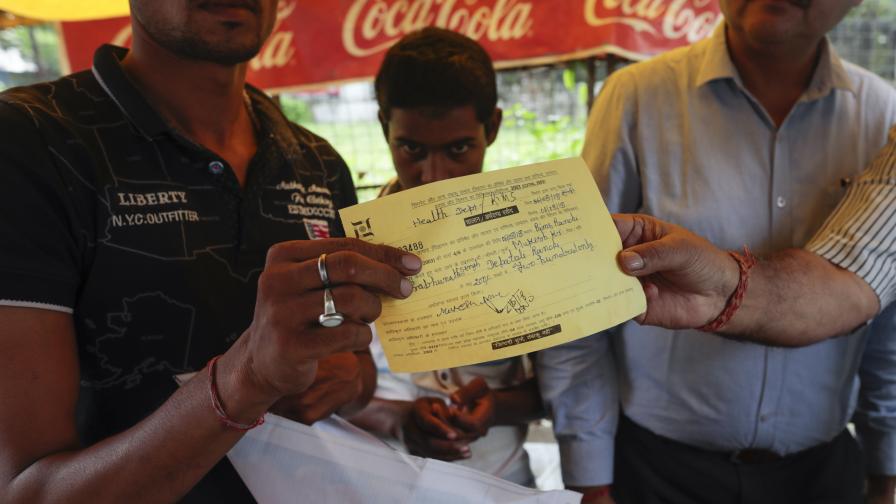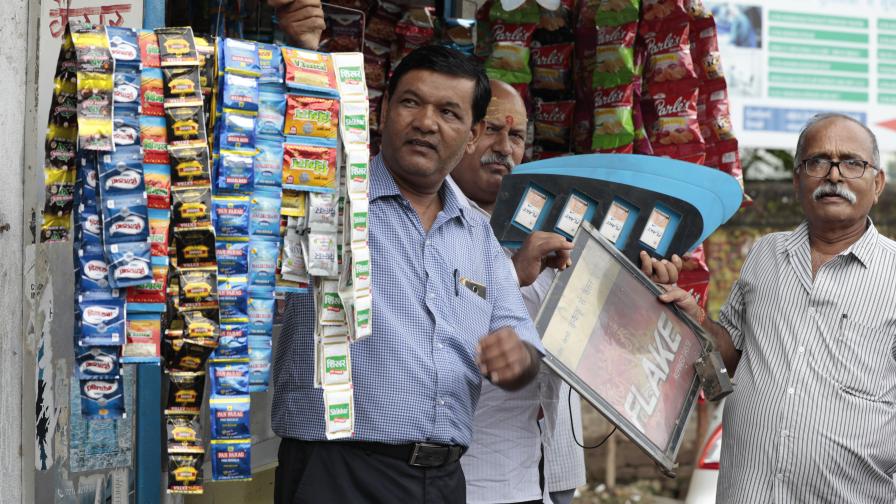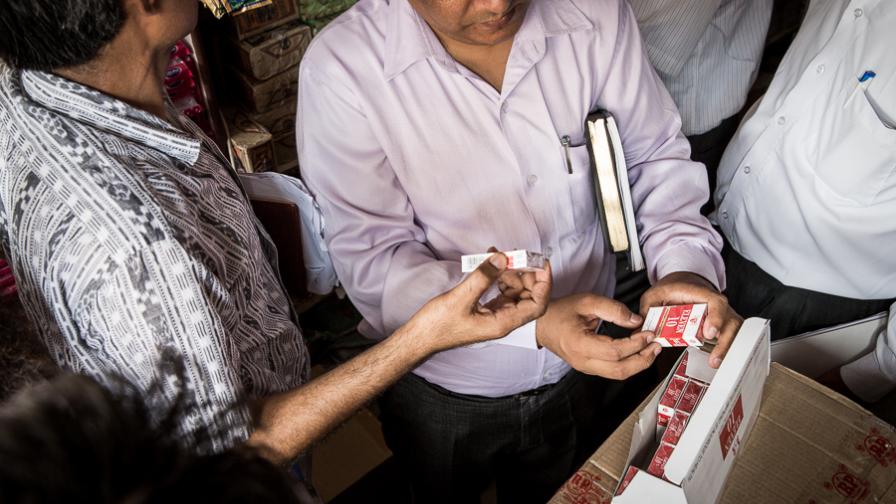
Tobacco Vendor Licensing is a strategy to reduce the availability and accessibility of tobacco products, particularly to youth. Policies can limit the density of tobacco retailers in communities, especially around schools, parks, or hospitals, and restrict the types of products that are permitted to be sold alongside tobacco.
High vendor density can normalize tobacco use, increase exposure to tobacco advertisements, and make it harder for users to quit, all contributing to elevated tobacco use and initiation rates. Tobacco Vendor Licensing is also essential to enforcing other tobacco control regulations, as it helps inspectors know where products are being sold.
Key Facts
Tobacco Vendor Licensing policies allow enforcers to dissuade repeat offenders of other tobacco control regulations and reduce initiation and re-initiation of users to tobacco products.
TVL policies benefit:
- Health: Well enforced TVL policies encourage vendors to comply with existing standing tobacco control regulations, or to introduce stronger ones, which have been proven to have a positive impact on community health.
- Community: Reducing density through TVL policies has been shown to decrease youth initiation and use, especially when school zones and neighborhoods are targeted.
- Social: Tobacco Vendor density is often higher in low-income and marginalized communities, which the tobacco industry has historically targeted [ref]. Licensing and density restrictions can help improve the health of these communities and reduce initiation of new users.
- Monetary: Applications for Tobacco Vendor Licenses usually come at a cost to the retailer and can help the city pay for other health initiatives or enforcement. Licenses also increase the likelihood that vendors will comply fully with tax policies, ensuring that the government is maximizng revenue from tobacco taxes.
- Compliance: TVL policies ensure authorities know the exact location of every tobacco vendor, ensuring improved communication with vendors about tobacco control policies, more effective enforcement of these policies and ultimately improved compliance.
In 2015, the Islamabad Tobacco-Smoke Free Capital (TSFC) Project started the implementation of The West Pakistan Tobacco Vend Act-1958 in Islamabad.
Under this project about 1,300 tobacco vendors were identified and registered. Whilst the licensing authority did not refuse any licenses, over 70 vendors since ceased trading tobacco. A study was conducted in 2018 to assess the compliance of tobacco vendors with the TVA and showed that awareness about the TVA among vendors was good (79%).
Vendor Licensing Implementation
Recommendations for governments implementing Tobacco Vendor Licensing regulations:
- Use TVL as a mechanism to ensure responsible retailing and compliance with important public health laws.
- Convene a taskforce to implement, evaluate and advise on policies for tobacco retail.
- Provide inspectors with the requisite knowledge and resources to enforce the licensing law and compliance with all relevant retail policies, including training in tobacco control.
- Preparation and counterarguments prepared for interference from the tobacco industry and front groups.
- A clear, well-communicated application process which includes the circumstances under which a license can be suspended or not renewed.
- Strong retailer communications and education on the law, their responsibilities under it and penalties for not complying.
- Mapping of all tobacco retailers in the jurisdiction followed by the creation of a publicly accessible database of all licensed vendors.
- Established systems to ensure data on retailers is accurately collected and recorded, providing up-to-date information about outlet addresses, changes in business ownership and whether the outlet continues to sell tobacco.
- Research commissioned to examine the potential benefits, feasibility and best practice regulatory approaches of placing controls on the number and type of tobacco outlets in the community.
- Publicly accessible annual reports with quantitative measures of retailer monitoring, compliance, prosecutions and convictions for the jurisdiction.
Implementation Challenges
As with any tobacco control law, there are challenges to implementing and enforcing TVL policies.
Some common challenges to implementing a TVL policy include:
- Creating a database of vendors that need to be licensed. Many jurisdictions have very large numbers of vendors, and where vendors do not have permanent brick-and-mortar retail sites (i.e. kiosks) they can be challenging to map.
- Educating businesses on new licensing laws. If no comprehensive lists of tobacco vendors exist educational materials and notifications on the law cannot be distributed easily.
- Getting vendors registered. In-person visits to retailers may be required to complete registration, putting an additional workload onto the responsible agency.
- Enforcement of tobacco vendor licensing and related laws. Once retailers are established under the licensing system enforcement can still be a labor-intensive exercise, requiring coordination among the multiple agencies responsible for all different point-of-sale laws.
- Industry interference. TVL policies are not popular with the tobacco industry as they undermine the large amounts of money the industry provides to retailers as incentives, cash or in-kind, for marketing and promotion of their products. TVL policies also limit the unregulated and unaccounted sale of tobacco products.
- Resistance from vendors. The vendors may resist the licensing to avoid the tax liabilities and penalties for violation of the law in place.
Policy elements
Tobacco Vendor Licensing includes a range of policies or regulations that aim to decrease the number of tobacco retailers in a certain city, neighborhood, or community. Vendor Licensing can also help enforce other tobacco control interventions, such as tax or advertising at the point-of-sale.
Introducing Tobacco Vendor Licensing is also an opportunity for policy makers to strengthen other tobacco control policies by adding rules addressing age of purchase, point-of-sale advertising, e-cigarette sales, and other strategies.

Below are some common features of TVL policies:
- Application Restrictions: Vendors should pay an application fee to obtain a license. The fee should ideally be high enough to at least cover costs of implementing the licensing law. Additionally, some policies prohibit vendors selling tobacco products alongside other specified products, for example pharmacies selling drugs or prescriptions, or vendors that carry products appealing to children. Retailers can also be prohibited from selling loose cigarettes or distributing free products as promotional items.
- License Revocation: This allows enforcers who identify a range of violations with relevant tobacco control policies, such as unlawful advertising, sales to minors, or lack of full tax compliance, to strip vendors of their licenses and prevent them from selling tobacco products.

- Location Restrictions: A policy can mandate that vendors be a certain distance from schools or other youth-oriented locations, as well as residential zones. Policies may also restrict the type of vendor that can apply for a license, prevent roadside or kiosk locations from distributing products.
- Density Restrictions: Policies can limit the number of vendors allowed by area or by population, forcing some vendors to cease tobacco sales. This can be done by limiting the number of applications available, preventing retailers who lose their license from reapplying, or not renewing a certain percentage or number of licenses each year to gradually decrease density.
OTHER POLICY AREAS
You might also be interested in learning more about implementing TAPS or Smoke-free policies.
